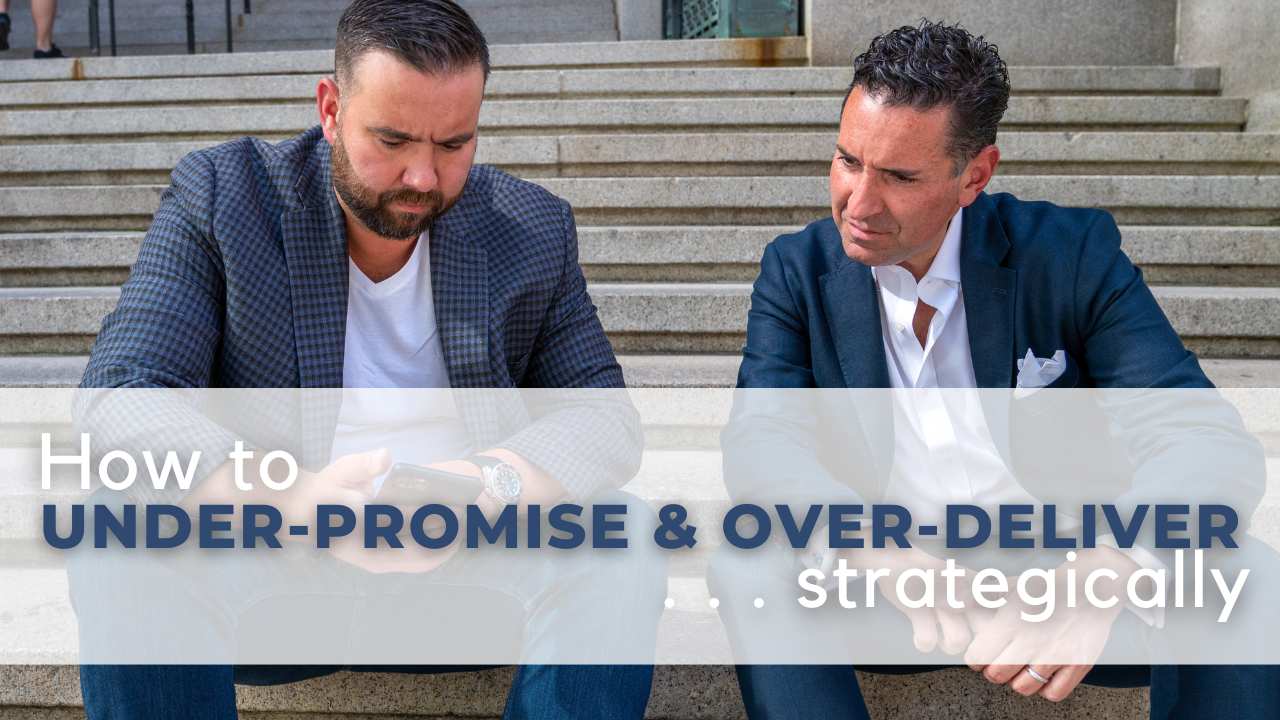Under Promise and Over-Deliver... Strategically

Under promise and over-deliver.
This seems like a wise bit of advice, no?
Most of us, at one point in our careers, have made the mistake of making guarantees we had no business making. Whether from overinflated confidence, a complete lack of awareness, or just wishful thinking, you promised the moon - and then suffered the fallout when you fell short of those promises.
Likewise, we’ve all been on the other side of the coin (or the dark side of the moon, if you will). You’ve placed your trust, confidence, and money in a person or business that promised one thing but delivered something very different. Were you a repeat customer after that? Probably not. You got burnt - and it sucks.
It’s not rocket science.
Anyone in the business of consistently overselling and under-delivering will likely not be in business very long. At least, not without the help of a very, very good marketing team.
But does this mean that doing the opposite of underpromising and over-delivering will have the very opposite effect? Is it a wise, strategic move to consistently downplay what you can provide for your customer, only to surprise them in the end with results that are better/cheaper/faster than expected?
Will that generate revenue, bring more people through your doors, and make your customers happier and more satisfied?
Very likely, yes.
But does that mean it’s always in your best interest to operate this way? Maybe, maybe not.
Let us play Devil’s Advocate for a moment.
- If you downplay your ability to deliver a product or service, will that decrease the number of customers who will do business with you in the first place?
- If you’re setting the bar low, won’t your prices need to reflect that? Might this limit what you can charge for your product or services?
- Do you create unrealistic expectations for your clients by always “doing more” than you initially promised? Will they expect that same type of service for all future transactions? How will this affect your time management and resources?
- In what ways are you “over-delivering?” If you quote a client a turnaround time of 10 days, and surprise! - you get it done in three, they might question the amount you’re charging for a similar project next time. Or what If you’re doing something extra outside the scope of the original request? Well, that original request better be damn near perfect, or anything “extra” won’t be met with much appreciation.
See where we’re going with this?
If we have to choose between Over-promising/Under-delivering vs. Under-promising/Over-delivering, we choose the latter of the two every single time, no question. Going above and beyond and doing more than expected is just good karma; what you put into this world is what you get in return.
But that doesn’t mean you serve as a doormat.
That doesn’t mean you should sell yourself short.
Don’t downplay your product or service for the sole purpose of being able to deliver “better than expected results.”
Set realistic expectations for yourself - and your customers. Be cognizant of what you can guarantee, and when the opportunity presents itself, you should absolutely overdeliver - but do so strategically; it’s in everyone’s best interest.



